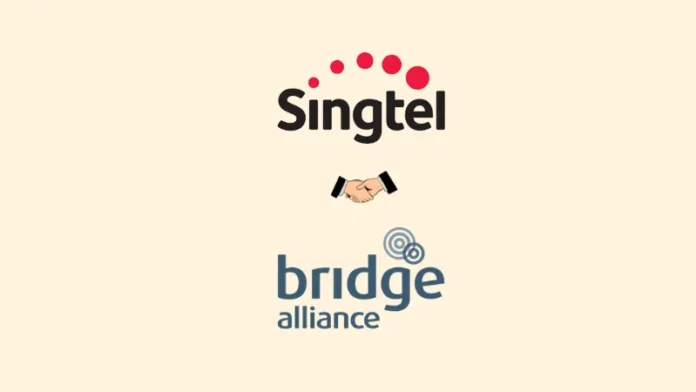
Singtel, an Asian communications technology corporation headquartered in Singapore, and Bridge Alliance, a global mobile alliance comprising 35 member operators, established a strategic partnership.
The cooperation aims to expand Singtel’s GPU-as-a-Service (GPUaaS) solutions to businesses around the region.
Leading telcos in Southeast Asia, AIS, Maxis, and Telkomsel, respectively, have expressed interest in the service and are among the alliance’s early adopters to meet the rising demand for artificial intelligence (AI) computing in Thailand, Malaysia, and Indonesia, according to a statement from Singtel.
This partnership comes after Singtel announced in February that it will debut its GPUaaS later this year, giving businesses access to NVIDIA’s AI computing capacity to deploy AI at scale swiftly and affordably to spur growth and innovation.
The statement suggests that if the revolutionary capacity of artificial intelligence (AI) can be unleashed to deliver value, its adoption might boost Southeast Asia’s GDP by around $1 trillion by 2030.
Regional governments have established national AI roadmaps in recognition of the significance of AI, with the aim of responsibly and fully utilizing the technology.
Under the terms of the agreement, Singtel’s GPUaaS products will be made available to Bridge Alliance member operators (BMOs).
Read also- Saudi Arabia-Based Yalla Plus has Secured $2.7 Million in Seed Round Funding
More GPU clusters will be introduced into each of these nations as demand for GPUs grows in order to grow and expedite corporate operations.
By working together, Bridge Alliance will help BMOs accelerate their go-to-market plans and successfully propel GPUaaS products among businesses.
“We are very heartened to see such strong interest from AIS, Maxis and Telkomsel to partner us in our GPUaaS offerings, Our collaboration with Bridge Alliance and telcos in the region will help democratize and accelerate the use of AI by enterprises across all industries, giving them the tools to achieve greater productivity and business value with our next-generation digital infrastructure and solutions,” said Bill Chang, Chief Executive Officer of Singtel’s Digital InfraCo unit.
It should be mentioned that Singtel was the first operator to introduce artificial intelligence (AI) to the 5G edge in the 5G@Sentosa trials for Singapore government agencies, thanks to its proprietary Paragon platform.
Paragon enabled companies to quickly and efficiently implement 5G use cases by orchestrating an NVIDIA GPU and multi-edge compute environment.
Ong Geok Chwee, Chief Executive Officer of Bridge Alliance, said as a leading mobile alliance which pools the collective capabilities of their BMOs together to deliver regional initiatives, they are delighted to bring the benefits of GPUaaS and AI computing to enterprise customers in the markets where their BMOs operate. Through our extensive coverage and ability to integrate services across multiple markets, this initiative once again validates the value of the Bridge Alliance ecosystem as a preferred solution partner in driving optimisation and innovation, especially for companies with multinational operations,” he added.
Clusters powered by NVIDIA H100 Tensor Core GPUs will power Singtel’s GPUaaS at launch. Singtel will also be one of the first in the world to introduce the GB200 AI Servers, the next generation from NVIDIA.
Read also- Georgia-Based TRAX Analytics Strategic Partnership with Comnet
Nxera, Singtel’s regional data center company, plans to expand the service to operate in new, hyper-connected, AI-ready, sustainable data centers throughout Singapore, Thailand, Indonesia, and Malaysia starting in mid-2025.
About Singtel
Singtel, Asia’s largest communications technology group, offers consumers and companies next-generation connectivity, 5G, technology, and infotainment. Over 740 million mobile users in 21 countries are served by the Group throughout Asia, Australia, and Africa. It provides corporate infrastructure and technology services in 21 countries from over 428 direct locations in 362 cities.





